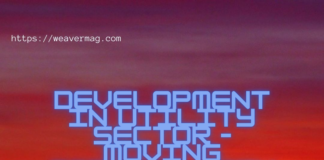The higher education landscape faces a pivotal moment in contemporary society, grappling with a myriad of challenges that significantly impact its accessibility, quality, and relevance. This crisis represents a complex amalgamation of various factors that necessitate a comprehensive exploration to comprehend its far-reaching implications and identify viable solutions.
Understanding the Higher Education Crisis
Accessibility: A Barrier to Overcome
Access to higher education stands as a formidable hurdle for countless individuals globally. Financial constraints, inadequate educational infrastructure, and socio-economic disparities converge to create barriers that obstruct deserving students from pursuing advanced studies. This exclusivity not only impedes personal growth but also hampers societal progress, perpetuating inequalities across diverse communities and regions.
Expanding access requires multifaceted interventions. Implementing robust scholarship programs, facilitating need-based financial aid, and fostering community outreach initiatives can significantly mitigate financial barriers. Moreover, bolstering educational infrastructure in underserved areas, coupled with mentorship programs, can empower aspiring students and broaden the reach of higher education.
Quality vs. Quantity: Striking a Balance
In the contemporary educational landscape, the focus often tilts toward achieving degrees rather than fostering a deeper understanding of subjects. Metrics like enrollment rates and completion numbers overshadow the essence of education, relegating qualitative measures to the sidelines. This imbalance not only undermines the fundamental purpose of academia—cultivating critical thinking and holistic skill development—but also compromises the overall quality of graduates entering the workforce.
Redressing this imbalance demands a shift in educational paradigms. Emphasizing a more comprehensive evaluation that values qualitative learning outcomes over mere quantitative achievements is essential. Promoting interdisciplinary studies, encouraging critical thinking, and integrating practical experiences within academic curricula can foster a more profound understanding of subjects and enhance the overall quality of education imparted.
Relevance in a Rapidly Evolving World
The dynamism of societal and technological advancements presents an ongoing challenge for higher education institutions. Many struggle to adapt swiftly to these changes, leading to outdated curricula and a substantial gap between academic programs and the evolving demands of various industries. Consequently, graduates often find themselves ill-prepared for the constantly shifting professional landscape.
To bridge this gap, educational institutions must foster a culture of adaptability and responsiveness. Revising curricula to align with emerging trends, integrating modern technologies into learning methodologies, and promoting lifelong learning initiatives can enhance graduates’ preparedness for the evolving workforce. Additionally, fostering partnerships with industry stakeholders can provide invaluable insights into the skills and knowledge required for career readiness.
The Roots of the Crisis
Financial Pressures
Financial sustainability remains a critical concern for higher education institutions worldwide. Reliance on tuition fees, coupled with dwindling public funding, strains resources and influences crucial aspects such as faculty-student ratios, infrastructure development, and academic programs. This financial strain often compromises the quality of education and limits the institution’s capacity to innovate and evolve.
Diversifying funding sources is imperative to alleviate this burden. Exploring public-private partnerships, incentivizing philanthropic contributions, and advocating for increased government funding can inject much-needed resources into higher education institutions. Implementing effective financial management strategies and prioritizing resource allocation towards academic excellence and student support systems are also crucial steps toward ensuring long-term financial viability.
Technological Disruptions
Technology continues to reshape the educational landscape, offering vast opportunities for innovative learning experiences. However, rapid technological advancements also present challenges. Educational institutions must navigate these disruptions effectively to harness technology’s potential for enhancing teaching methodologies and student engagement.
Investment in robust digital infrastructure, faculty training programs focused on technological integration, and the development of user-friendly educational platforms are pivotal steps in leveraging technology for educational advancement. Additionally, embracing adaptive learning systems and personalized educational approaches can cater to diverse learning styles, fostering an inclusive and technologically adept learning environment.
Globalization and Cultural Diversity
The globalization of education brings unprecedented cultural diversity into higher education institutions. While this diversity enriches the learning experience by exposing students to varied perspectives, it also necessitates a reevaluation of traditional teaching methodologies to accommodate diverse cultural backgrounds and learning styles.
Promoting cultural inclusivity and fostering an environment that celebrates diversity are foundational pillars in addressing this aspect of the crisis. Implementing inclusive pedagogical approaches, promoting cross-cultural exchanges, and integrating diverse perspectives into curricula can create an enriching educational experience. Encouraging intercultural dialogue and establishing support systems for students from diverse backgrounds are crucial in creating an inclusive learning environment.
Navigating Towards Solutions
Fostering Inclusivity and Accessibility
Creating a truly inclusive higher education system requires concerted efforts to dismantle barriers to access. Establishing comprehensive scholarship programs, advocating for equitable financial aid, and expanding educational infrastructure in underserved communities are fundamental steps toward enhancing accessibility. Furthermore, nurturing mentorship programs and fostering partnerships between educational institutions and local communities can empower aspiring students from diverse backgrounds.
Rethinking Pedagogy and Curriculum
Revamping pedagogical approaches and curricular structures is pivotal in addressing the crisis of relevance and quality in higher education. Encouraging interdisciplinary studies, integrating real-world experiences into academic programs, and fostering collaborations with industries can align educational offerings with the evolving needs of the workforce. Furthermore, promoting a culture of continuous learning and adaptability among faculty members can catalyze educational innovation.
Embracing Technological Advancements
Effectively leveraging technology necessitates a strategic approach aimed at enhancing the learning experience. Investing in state-of-the-art digital infrastructure, providing comprehensive technological training for educators, and developing user-friendly educational platforms are essential steps. Additionally, embracing emerging technologies such as AI-powered adaptive learning systems and virtual reality can revolutionize educational delivery methods, making learning more accessible and engaging.
Conclusion:
The higher education crisis demands a unified and holistic approach from stakeholders at all levels—governments, educational institutions, industries, and communities—to address its multifaceted challenges. By embracing inclusivity, redefining educational paradigms, and leveraging technological advancements, the path toward a more accessible, relevant, and equitable higher education landscape can be charted.
This transformative journey requires a fundamental shift in perspective, viewing education not merely as a means to acquire knowledge but as a catalyst for societal progress. By reconceptualizing higher education as a dynamic, inclusive, and adaptable ecosystem, stakeholders can collectively shape a future where learning transcends boundaries, empowers individuals, and fosters innovation in an ever-evolving world.










